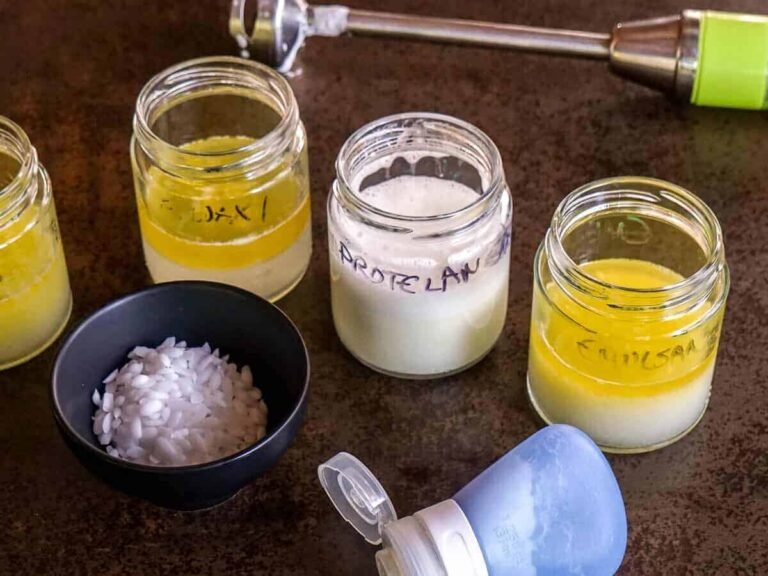Exosome skincare is reshaping modern cosmetic science by focusing on how cells communicate and coordinate renewal. These nanosized vesicles act as biological messengers that transfer proteins, lipids, and genetic signals between cells. Because they influence the skin’s internal communication networks, exosomes support visible regeneration and enhance the overall performance of cosmetic formulas. As a result, formulators and chemists increasingly view exosomes as precision tools for driving more efficient rejuvenation pathways.
In contrast to traditional actives that work primarily at the surface, exosomes function through biological signaling cascades. They interact with receptors, initiate transcriptional responses, and guide cellular behavior in a synchronized way. This mechanism allows exosome skincare to improve firmness, radiance, and smoothness while maintaining excellent skin compatibility. Since their structure mirrors natural vesicles produced by the body, they operate as intuitive carriers that help skin cells respond more effectively to daily stress.
What Exosomes Are and Why They Matter in Skincare
Exosomes are extracellular vesicles measuring roughly 30–200 nanometers. They form inside cells through a tightly regulated process in which intraluminal vesicles accumulate within multivesicular bodies. When these bodies fuse with the plasma membrane, they release exosomes that carry bioactive components such as peptides, phospholipids, microRNAs, and antioxidants. These components influence cell metabolism, repair signals, and regulatory pathways associated with visible aging.
In skincare applications, exosomes supply a compact delivery structure capable of interfacing with the stratum corneum and upper epidermis. Their lipid bilayer protects sensitive molecules while allowing targeted signaling interactions. Because of this design, they maintain stability and help enhance the skin’s communication loops. Consequently, the skin responds more efficiently to rejuvenation signals and environmental stress, creating an improved appearance and texture.
A study published in the Journal of Cosmetic Dermatology (2023) reported a measurable increase in skin density and hydration after four weeks of topical exosome use. These findings highlight the role of exosomes as biologically active carriers rather than passive delivery vehicles. The study also noted improved cellular vitality markers, suggesting stronger internal communication between keratinocytes and fibroblasts.
How Exosomes Support Regeneration Through Cell Signaling
The most compelling aspect of exosome skincare is its mechanism of action. Exosomes attach to receptors on the surface of skin cells, and this interaction triggers downstream pathways related to regeneration. Through receptor-mediated endocytosis or membrane fusion, exosomes release their bioactive cargo directly into the cell. As a result, intracellular signaling shifts toward heightened renewal and protein synthesis.
These vesicles often carry microRNAs that regulate gene expression. When these microRNAs enter the cytoplasm, they modulate pathways associated with collagen formation, oxidative balance, and tissue remodeling. Because these pathways operate at a biological level, the improvements appear smoother, more natural, and more consistent over time. This communication-centered approach supports firmness, elasticity, and a more even complexion.
Furthermore, exosomes help synchronize neighboring cells. They allow fibroblasts, keratinocytes, and immune cells to coordinate their responses more effectively. This coordination plays a key role in how the skin adapts to stress and maintains visible vitality. When cells receive clearer, more organized signals, they respond with better structure and improved resilience.
Intercellular Communication: The Core of Exosome Skincare
Intercellular communication controls how tissues behave, renew, and defend themselves. Exosomes elevate this communication through targeted molecule transfer. They transport growth factors and regulatory proteins that activate fibroblast pathways responsible for structural proteins. Through this process, the extracellular matrix becomes more organized and supportive.
Additionally, exosomes influence the crosstalk between epidermal cells. Keratinocytes communicate more effectively when exosomes deliver signaling cues that regulate differentiation and turnover. As a result, the surface appears smoother and more refined. Since this improvement arises from coordinated biological behavior rather than surface coating, the effects align closely with natural skin cycles.
Because exosomes guide multiple pathways simultaneously, they offer a multifunctional rejuvenation approach. They can enhance radiance, smooth texture, and support tone uniformity without requiring multiple separate actives. This efficiency makes exosome skincare attractive for chemists developing streamlined, results-driven formulations.
Biological Pathways Activated by Exosome Skincare
Exosome signaling activates several pathways that influence visible rejuvenation. The PI3K/AKT pathway plays an important role in cellular metabolism and vitality, and exosomes help stimulate this route in a controlled manner. Through better PI3K/AKT activity, skin cells maintain healthier energy use and improved performance.
Exosomes also affect the MAPK pathway, which governs responses related to stress adaptation and renewal. When this pathway receives balanced input from exosome signals, keratinocytes and fibroblasts behave more consistently. In turn, the skin shows a brighter and more refined appearance.
Moreover, exosomes help regulate oxidative balance through microRNA-controlled gene expression. This process supports a clearer and more radiant complexion by reducing cellular strain. Because these pathways operate in combination, the visible outcome appears harmonious and integrated rather than abrupt or superficial.
Why Exosome Skincare Delivers Visible Performance
Exosome skincare works because it interacts with biological systems already present within the skin. This synergy creates a smoother rejuvenation response without overwhelming the tissue. Many traditional actives target isolated concerns, but exosomes coordinate multiple improvements at once. For example, they enhance protein synthesis, support clarity, and improve softness in a single cohesive process.
These advantages make exosomes compatible with both daily skincare products and professional treatments. Formulators appreciate their stability, compatibility with water-based systems, and natural biomimetic structure. Because exosomes resemble vesicles produced by living cells, they integrate easily with other actives such as peptides and antioxidants. This compatibility increases formulation flexibility and reduces the likelihood of irritation.
How to Use Exosomes in Professional and At-Home Skincare
Exosome serums and ampoules integrate effectively into morning or evening routines. Consumers often apply them after cleansing and before moisturizer to encourage active signaling during daily skin cycles. At-home devices such as LED masks or microcurrent tools may also complement exosome use by improving surface receptivity.
Professionals frequently combine exosomes with energy-based treatments. When applied after microneedling or laser procedures, exosomes reinforce communication pathways that support smoother recovery. This application helps improve brightness, firmness, and overall tone. Because exosomes work through internal responses, the effects continue to develop naturally over time.
Research Links
- Frontiers in Pharmacology, 2022 – Plant vesicles and signaling interactions
- Frontiers in Immunology, 2023 – Vesicle-driven oxidative balance
- Journal of Extracellular Vesicles, 2021 – Vesicle integrity and communication pathways
- Pharmaceutics, 2022 – Structural performance of nano vesicles
- Biomolecules, 2023 – Bioactive cargo and delivery features






